The Philippines has implemented widespread social distancing measures to stop the spread of coronavirus, including social distancing in the country’s wet markets — which are still open and selling raw food.
Despite strict measures meant to shut down daily life in the Philippines to blunt the spread of coronavirus, the wet markets remain open, using sheets of plastic to try and prevent the spread of disease while the markets continue to operate.
In fact, when the Philippines instituted strict stay-at-home measures in March, one of the few things allowed to remain open were wet markets.
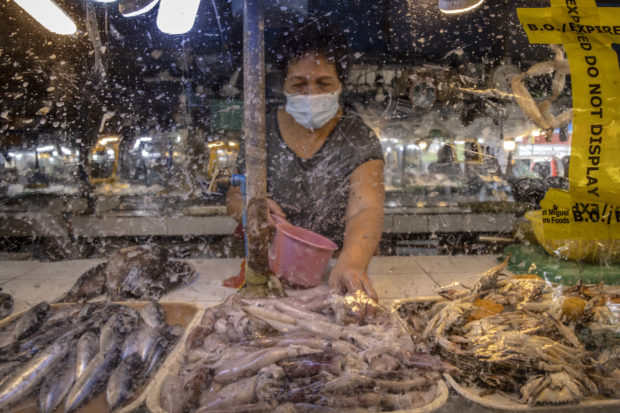
LAS PINAS, PHILIPPINES- A vendor arranges fish inside her stall covered in plastic to enforce social distancing inside a wet market on March 30, 2020 in Las Pinas, Metro Manila, Philippines. The Philippine government has sealed off Luzon, the country’s largest and most populous island, to prevent the spread of COVID-19. Photo by Ezra Acayan/Getty Images
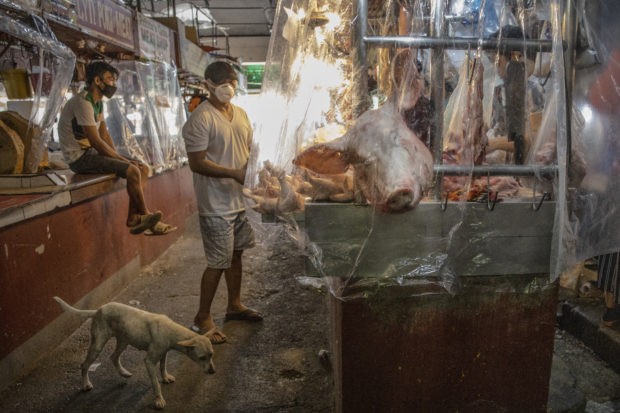
LAS PINAS, PHILIPPINES – Stalls inside a wet market are seen covered in plastic to enforce social distancing on March 30, 2020 in Las Pinas, Metro Manila, Philippines. Photo by Ezra Acayan/Getty Images
Wet markets exist across Asia and often sell both live and dead animal products for human consumption.
Last week, People for the Ethical Treatment of Animals (PETA) released a statement calling for the Philippines to permanently shut down wet markets, according to multiple reports in Philippines newspapers.
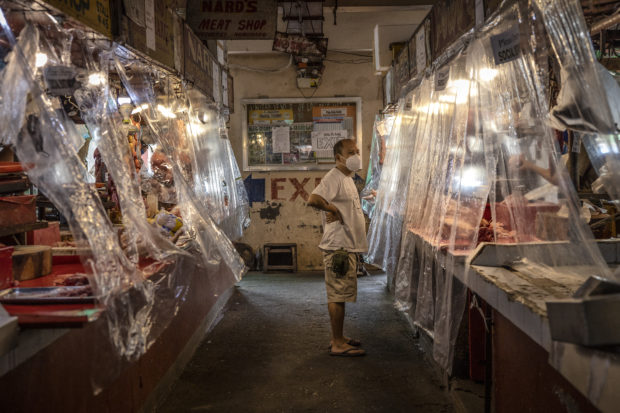
LAS PINAS, PHILIPPINES – Stalls inside a wet market are seen covered in plastic to enforce social distancing on March 30, 2020 in Las Pinas, Metro Manila, Philippines. Photo by Ezra Acayan/Getty Images
“It’s a matter of when—not if—the next pandemic will occur, as long as live-animal markets are permitted to continue endangering both humans and other animals,” a PETA official said.
“PETA is urging the Philippines to take the next logical step and close these dangerous operations.”
Further, The Guardian published a report Monday indicating that acting Executive Secretary of the UN Convention on Biological Diversity Elizabeth Maruma Mrema thinks that wet markets may need to be closed globally.
“It would be good to ban the live animal markets as China has done and some countries,” she said.
“But we should also remember you have communities, particularly from low-income rural areas, particularly in Africa, which are dependent on wild animals to sustain the livelihoods of millions of people.”
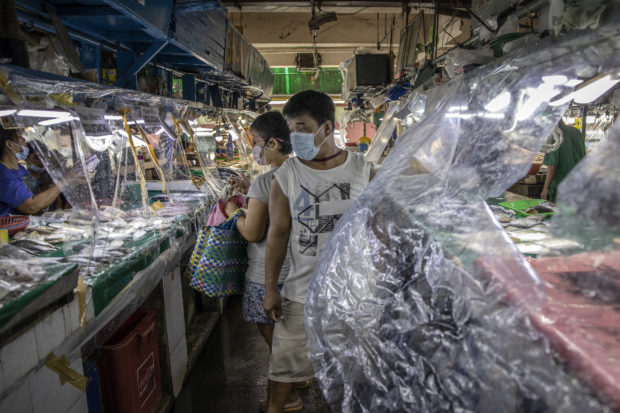
LAS PINAS, PHILIPPINES – Stalls inside a wet market are seen covered in plastic to enforce social distancing on March 30, 2020 in Las Pinas, Metro Manila, Philippines. Photo by Ezra Acayan/Getty Images
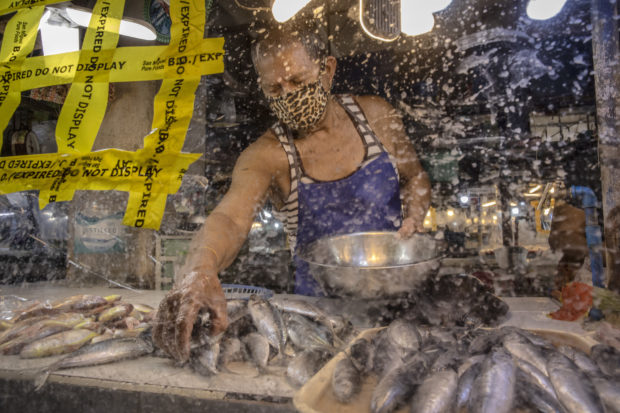
LAS PINAS, PHILIPPINES – MARCH 30: A vendor arranges fish inside his stall covered in plastic to enforce social distancing inside a wet market on March 30, 2020 in Las Pinas, Metro Manila, Philippines. Photo by Ezra Acayan/Getty Images
A new report Monday from Filipino news site PhilStar indicates that wet markets continue to stay open, but with stricter measures, such as alcohol sanitizer and temperature scanners to try to prevent people with fevers from getting into the market.
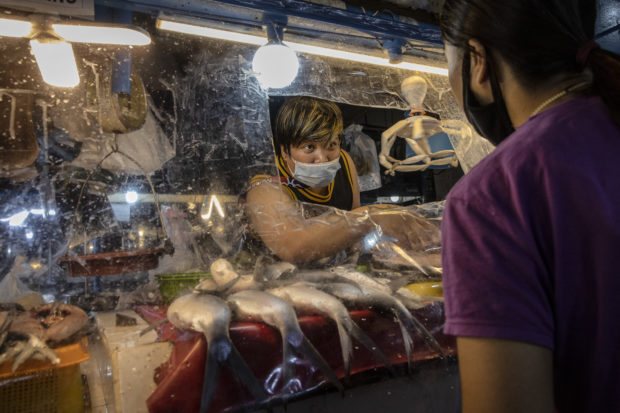
LAS PINAS, PHILIPPINES – A vendor serves a customer at her stall through a plastic cover to enforce social distancing inside a wet market on March 30, 2020 in Las Pinas, Metro Manila, Philippines. Photo by Ezra Acayan/Getty Images
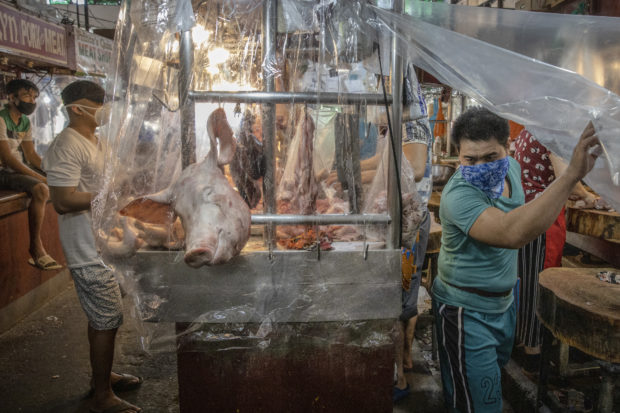
LAS PINAS, PHILIPPINES – A vendor walks out from his stall covered in plastic to enforce social distancing inside a wet market on March 30, 2020 in Las Pinas, Metro Manila, Philippines. Photo by Ezra Acayan/Getty Images
Dr. Anthony Fauci called for wet markets to be shut down last week too, saying in a Fox News interview, “It boggles my mind how when we have so many diseases that emanate out of that unusual human animal interface that we don’t just shut it down.”
Republican South Carolina Sen. Lindsay Graham similarly took issue with China’s wet markets, saying in recent interview, “These wet markets in China, people eat bats and they eat monkeys, and bats and monkeys — at least bats for sure — carry this kind of virus.” (RELATED: Tucker Carlson: ‘China Continues To Threaten The Rest Of Us With Wet Markets’)


